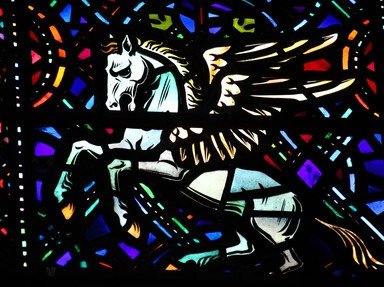Quiz Answer Key and Fun Facts
1. Which ancient Canaanite god had a name that meant "master" or "owner"?
2. This god's name means "little fish".
Who was he, according to the ancient Philistines?
3. This idol's name meant "king". Who was this major god of the Canaanites that was represented as a huge bronze statue with the head of a bull?
4. According to one theory, what ancient Assyrian god may have originally been a human named Nimrod, one of the great-grandsons of Noah?
5. What?
Who is this god whose names sounds like a bad grandmother?
Known as both "Sin" and "Nanna", from what two ancient nations did this idol originate?
6. Well, let's give some equal time to the ladies, shall we?
I mean, we don't want to focus on just the gods, when there were almost as many goddesses that demand our attention, too.
Which goddess of Babylonian and Sumerian myths was the "shining" goddess of salt water, or the sea?
7. This god wasn't so much worshipped as he was simply feared. He was the god of summer, the hottest part of the year, when crop destruction from heat was most prevalent. Who was this Babylonian god who frightened people into thinking that they might starve to death?
8. Another god of the sun, this one from the ancient Babylonian/Assyrian peoples, was usually considered secondary to the moon god, Sin. What is the name of this god of the sun?
9. Two passages in the Book of Jeremiah 7:17-18 and 44:15-19 refer to ancient Israelite worship of a "Queen of Heaven." Who is this female deity that the ancient Israelites worshipped, horrifying the prophet Jeremiah as they did so?
10. Chiun, the star god, is quite possibly just another name for one of the "gods" already mentioned, although that may be arguable, since both names are mentioned in the Biblical book of Amos. Can you determine which other god's name MAY be considered interchangeable with "Chiun" and is mentioned in the same text as Chiun, according to Amos 5:26-27?
Source: Author
logcrawler
This quiz was reviewed by FunTrivia editor
CellarDoor before going online.
Any errors found in FunTrivia content are routinely corrected through our feedback system.
